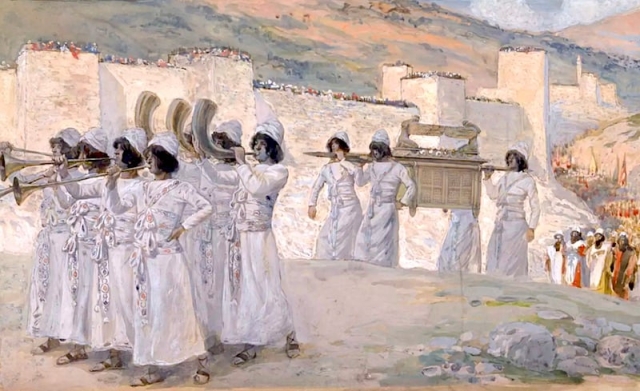UNESCO is slated to designate the ancient ruins of Jericho as a world heritage site within Palestine in an upcoming conference in Saudi Arabia. The decision is likely to gain approval given the majority dynamics of the committee. While this is not the first instance of tension between Israel and UNESCO over the cultural ownership of historically significant sites, this latest development represents a new layer of complexity.
The case of Jericho is unique for several reasons. First, it holds enormous significance in Jewish history and has substantial archaeological evidence linking it to the ancient Israelites. It's worth mentioning that Jericho is one of the oldest continuously inhabited cities in the world, dating back around 10,000 years. Its rich history touches various cultures and religions, not least of which is Judaism. Therefore, its designation as a world heritage site in Palestine without acknowledgment of its Jewish heritage can be seen as a problematic omission.
People must ask themselves what's "palestinian" in Archaeological sites like Hebron (a Canaanite city, than a Judahite city), Jericho(Neolithic-late Antiquity city), Samaria(Israelite capital), Mount Gerizim(Samaritans' most Holy),etc. that @UNESCO tries to announce them as such?
— Lugassi 𐤋𐤅𐤂𐤎𐤉 לוגסי 🇮🇱 (@WolfLugassi) August 30, 2023
This wouldn't be the first time UNESCO has found itself in hot water with Israel over decisions related to cultural and historical sites. In 2017, the organization declared the Tomb of the Patriarchs as a Palestinian heritage site, provoking Israel's ire. The tomb is traditionally believed to be the resting place of seminal figures in Jewish history—Abraham, Isaac, and Jacob. A year prior, UNESCO did recognize Jerusalem as significant to the three Abrahamic religions but chose to define the Temple Mount and the Western Wall Plaza solely as Muslim holy sites.
It is worth noting that the forthcoming vote seeks to declare Jericho a world heritage site in Palestine, rather than a Palestinian heritage site per se. However, the Member of Knesset Dan Iluz has voiced strong objections to the prospective declaration. He has penned a letter to UNESCO's Secretary-General, Audrey Azoulay, requesting the cancellation of the vote. According to Iluz, such a decision amounts to a significant overreach by UNESCO into the complex Israel-Palestine conflict. He argues that similar decisions have harmed the relationship between UNESCO and the State of Israel in the past, specifically mentioning UNESCO's decisions regarding the city of Hebron and the Temple Mount.
New post (UNESCO to rule on ancient Jericho as Palestinian World Heritage site) has been published on ISRAPUNDIT - https://t.co/F3N4fl3Xud pic.twitter.com/Kp19MRggWx
— Israpundit (@Israpundit) August 3, 2023
Dan Iluz underscores the biblical import of Jericho, emphasizing that any move to downplay this historical aspect would be an affront not just to Jews but also to Christians globally who value the site for its scriptural connections. Iluz contends that the Palestinian Authority's request does acknowledge the historical significance of Jericho but undermines it by claiming that such links are archaeologically unfounded. His point is salient; dismissing the religious and cultural heritage of a site that holds a diversified historical significance could be considered an act of cultural erasure.
"UNESCO must recognize the ancient history of the Land of Israel and preserve its history while refraining from distorting it for political objectives," Iluz writes. Actions that seem to rewrite or overlook the multifaceted history of such a significant location can indeed undermine the credibility of UNESCO as a guardian of global heritage. In doing so, such actions could potentially do more harm to the organization's mission than they would to the State of Israel.
Officials stress city carries major significance not only to Jewish people – being the city where, according to the Bible, the Israelis crossed into the Land of Israel after wandering in the desert – but Christians as well.https://t.co/As0pY9aX0L
— Israel Hayom English (@IsraelHayomEng) September 3, 2023
The controversy surrounding the impending UNESCO decision serves as a reminder of how intricately connected history, politics, and cultural heritage can be. In navigating this complex terrain, there's a need for an even-handed approach that honors the multiple layers of history and significance embedded in such ancient sites. Declaring Jericho as a world heritage site within Palestine could be a stepping stone for mutual respect and coexistence, but only if it respects the full tapestry of its ancient and varied history.


